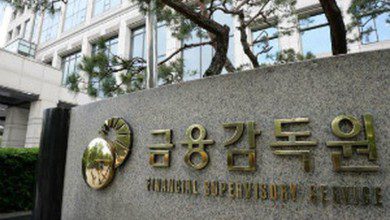
Lack of cryptocurrency development from Busan causes frustration
For over a year, the southern South Korean port city of Busan has been home to the Busan Blockchain Regulation-Free Zone where blockchain startups and tech companies could collaborate to create new technical solutions across various fields. Contrary to the expectation that it may be used as something of a sandbox for blockchain and cryptocurrency development, so far there have been nearly no cryptocurrency-related startups to pass through the zone.

Since 2018, the South Korean government has taken a hard stance against cryptocurrency trading. The government implemented various guidelines meant to hamper the wild speculation of cryptocurrency values which resembled gambling, an illegal act in South Korea. In light of the government’s stance, many thought safe cryptocurrency development would take place in Busan under the guidance of major tech and financial institutions.
The recently passed Special Reporting Act which made cryptocurrency a legally defined and regulated entity in Korean law limits startups’ ability to develop advancements with cryptocurrency, according to Jieun Lee, a legal advisor for the Busan Blockchain Regulation-Free Zone.
As an example of Lee’s comments, Sejong Telecom planned to sell and distribute real estate funds via a blockchain-based platform. They needed to adjust their plans when the service was found to violate the Electronic Security Act. One observer from Busan noted that the legal violations which some blockchain solutions present can have a damaging effect on the reputation of the entire zone.
Although cryptocurrency and blockchain are not the same thing, they go hand in hand. Despite their inseparability, the zone has prohibited further cryptocurrency development with the single exception of the ‘Digital Voucher’ project through Busan Bank.
Startups Disgruntled
Startup executives cry foul on the Busan Blockchain Regulation-Free Zone for their move to allow Busan Bank’s project but not others. One official criticizes the move as clear favoritism towards a company with considerable size and ample capital at their disposal. In response, Gwanghee Park, an official in charge of Busan’s Smart City Promotion division said, “[It is difficult to permit cryptocurrency development even in a special regulatory-free zone because of the government’s stance and because it may send the wrong signals to the market.]”
The controversy growing around the zone has motivated many startups to leave Busan for Seoul where the majority of domestic south Korean blockchain companies reside.
Regardless of the current snags in the zone’s operation, several viable solutions have nearly passed through the zone’s process entirely while others are still long in development.
Busan also became the first city in the country to provide a mobile identity verification service based on blockchain technology. This service replaces the digital identification verification authentication which was decommissioned earlier this year in South Korea. With the service, users can acquire digital ID cards and families can apply for family welfare subsidy cards that would essentially be issued via the new non-face-to-face method, a contemporary civil necessity in the Covid-19 world.




